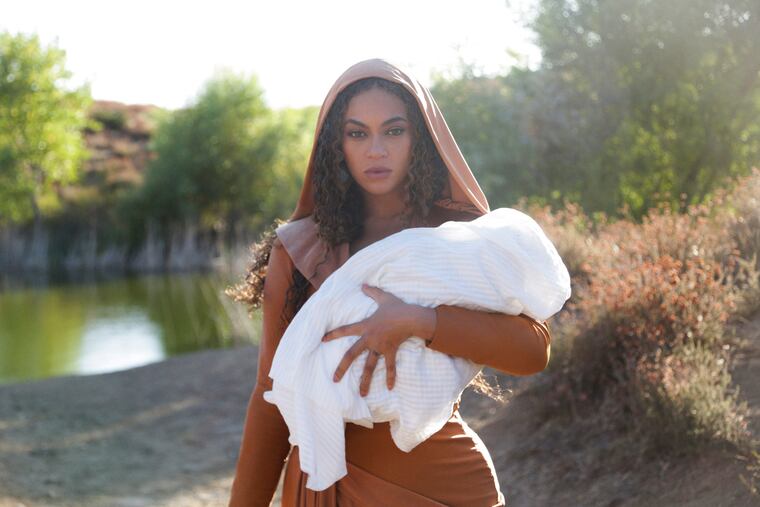‘Black Is King’ critics slam Beyoncé for being political, but that’s what she’s been doing all along | Opinion
Black women artists remain scrutinized for their political stances, but Beyoncé was always political.

Beyoncé has done it again. In the span of little more than a month, she dropped a track for Juneteenth, wrote a public letter to Kentucky officials demanding justice for Breonna Taylor, and released her Disney+ visual album, Black Is King, as a celebration of Black life and “tradition.” Michelle Obama presented her — “my girl,” was her loving term — a BET Humanitarian Award. Beyoncé was lauded for her philanthropic efforts — clean water in Burundi, coronavirus testing and PPE kits in Houston — as well as professional choices — to hire Black musicians in Homecoming and to develop young acts like Chloe x Halle. Since Formation, the era of political Queen Bey has been upon us. This was her coronation.
Some question the timing and commitment of the mega-rich star to issues of racial justice. Others celebrate her every move as Black Excellence in full effect. Still others criticize her for her representation of African culture. Her mother responded on Twitter in her defense.
What is it the American public wants from Black celebrities? What is it we expect when it comes to revealing their politics? Why do we watch them for their political commitments, poised for both backlash and critique?
Eighteenth-century poet Phillis Wheatley provides one answer. In a time when there were few public Black figures, Wheatley’s exceptional status as an enslaved polyglot teenage poet was a lightning rod for debates about Black humanity for George Washington, Ben Franklin, and Thomas Jefferson (who wrote disparagingly of her talent), as well as her few fellow Black and Indigenous writers like Jupiter Hammon and Samson Occum. Her exceptional celebrity meant she was always seen not just as herself, but as a referendum on her race. Critics and fans alike read her into this frame, trying to locate in her verse references to her political leanings even as she wrote poems about grief and loss.
Beyoncé came of age in a post-civil rights world with more public Black representation, but one where Black women in the arts (and Black men in sports) were told to stay in their lanes, to “shut up and dribble.” The Black Lives Matter movement and Beyoncé‘s star power converged in 2016, and an overtly political Beyoncé emerged. She was wrapped in the sonic and visual legacy of the 1960s with Black Panther-inspired Super Bowl costumes (infamously earning a withdrawal of security by Miami police for her concert tour) and the “Freedom” track on Lemonade with Kendrick Lamar. She was armed with proclamations of Black pride in her role as a mother of young Black children. And since then, she’s been boasting about her extreme wealth and her Black political bonafides.
This mix of commerce and political commitment is always an uneasy one for Black celebrities, particularly those with “crossover” multiracial audiences. Shape-shifting comes with celebrity culture. But for Black celebrities, “political” work is highly scrutinized by both Black and white audiences at the crossroads between what sells and what reads as too little, too late to racial justice.
If the history of Black celebrity in the U.S. tells us anything, it’s that this moment isn’t the only reckoning with Beyoncé‘s political legacy. Wheatley would become a bone of contention for Harlem Renaissance and Black Arts poets looking to declaim her as inauthentic — writing in formal couplets, ceding too much ground to the racism of chattel slavery into which she was kidnapped. Not until the 1980s was her legacy revised as a “miracle” by poet June Jordan and writer Alice Walker. Phillis Wheatley didn’t change — African American ideas about what it means to be political did.
A similar trajectory might await Beyoncé. History might look on her with skeptical or celebratory eyes. But it might also look back with the tenderness that Wheatley was eventually afforded more than two centuries after her landmark life. We might read the totality of Beyoncé‘s work knowing that “the political” is a ground that is always shifting in the U.S., and for Black celebrities. Her “early” work, pitched to young Black women, speaks to love, loss, desire, and finding ways to live and feel in the world as it is. This work is often understood as her apolitical past, rather than as a political statement on Black women’s inner lives.
Beyoncé was always political — let’s not wait 200 years for history to teach us that lesson.
Samantha Pinto is the author of the upcoming book “Infamous Bodies: Early Black Women’s Celebrity and the Afterlives of Rights” from Duke University Press.